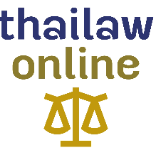Why foreigners should not be worried by the new modification to the revenue code in Thailand
-
Recently Browsing 0 members
- No registered users viewing this page.
-
Topics
-
Popular Contributors
-
Latest posts...
-
19
Grab Taxi Suvarnbhumi Airport to Pattaya....I got some news for you...
I find one that'll do that every time. I only ever tip around 20-30 baht - not because I'm a tightarse but because of the problems that tipping causes for Thai people. My ex used to work at the Marriot in Sukhumvit and had to work alternate late shifts. She used to have a hell of a job to get a taxi that would take her home when she finished at 11pm. She could often stand there for 15-20 minutes trying to get a taxi. You can probably imagine what its like for a young woman who's not involved in the 'nightime industry' in Sukhumvit to stand there waiting for a taxi. Many drivers are not interested in taking Thai's because of the amounts that foreigners tip. Foreigners often tip 1-200 or more, stating that its a very small amount to them but it needs to be put into perspective. Many Thai's earn around 350-400 baht per day - 200 baht is half a day's pay for them. Low paid workers in the UK earn around £100 per day (4300 baht). I can't imagine a situation where someone would tip a UK taxi driver £50 or even half that - yet that's what many foreigners do in Thailand and it creates a real problem for Thai's. -
1,186
Introduction to Personal Income Tax in Thailand
I hear you BUT I will say that the USA/West definition of what a mutual fund is, does not automatically mean that in Thailand they are the same. I am no expert but I would check the Thai definition in the Tax Laws (now and when a global system is introduced). In the USA/West what a 'mutual fund' definition is probably based upon (taxation and legal issues) does not automatically translate to Thailand. Plus there is the Tax Court's interpretation that may or may not have already taken place. Unlike in USA/West where the Tax Office decides what exactly one of their rules and laws means (which can be challenged in Court), in Thailand there are a lot of situations where a matter is referred to the Taxation Court for interpretation and decision - including by the TRD itself. -
19
Wise transfers
I did a couple of transfers this week, each took about 5 seconds. -
69
What is the easiest / quickest way to get a visa for my wife to visit the UK
VfS have no influence on the decision making process. In the past they have come across as being obstructive on occasions, not so in recent years. Morocco......that's an interesting choice @sandyf not a place I have considered. -
17
Tahilands number 1 forum improves by leaps and bounds since Thaiger takeover.
Nothing to crow about. The Sun outsells all the broadsheets by miles. 2005 - If you posted a Thai language question or a question related to dealing with the Labour Ministry, you would receive articulate replies. 2025 - If you posted a Thai language question or a question related to dealing with the Labour Ministry, you would receive abuse, anecdotes from Soi 6 and US culture wars. We need private chatrooms to filter out the hoi polloi. -
14
Dr. James Thorp: "I vaccinated all my children. Why? Because... I was an idiot"
Wow, I'd never thought of it that way. Thanks for showing me the light.
-
-
Popular in The Pub
-












Recommended Posts
Create an account or sign in to comment
You need to be a member in order to leave a comment
Create an account
Sign up for a new account in our community. It's easy!
Register a new accountSign in
Already have an account? Sign in here.
Sign In Now